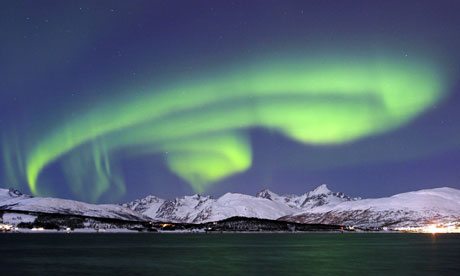
The clue, of course, is in the name. Usually, to see the northern lights, or the aurora borealis as they are formally known, you would have to head towards the Arctic, but this week – with a bit of luck and the right conditions – it could be possible to see them as far south as London.
What should you do to maximise your chances? The first thing we need to see the northern lights is a clear night. "The aurora is above cloud levels, which means clear skies are necessary," says Sarah Reay, a geomagnetism scientist with the British Geological Survey.
According to Alison Richards, a spokesperson for the Met Office, "the cloud and rain will clear away on Wednesday evening after which we are expecting broken cloud overnight for the rest of the week."
Reay says the best places to see the aurora borealis are still "Scotland and northern England, going on experience from Sunday.
"Ideally, go somewhere dark, away from street lights. Look to the north because it is usually seen in the north, although this depends on where you are in the UK and as [geomagnetic] activity increases, it moves southwards. So it could appear anywhere. We usually recommend you look out for it around midnight, so from 10pm to 2am would be the best chance, but on Sunday, I think the peak activity was from 8pm to 11pm."
There is still a lot of doubt about how much we will be able to see, says Reay. "It's dependent on magnetic activity, which is highly variable. Sorry to be so vague, but it's difficult to tell how intense the storm will be until it actually arrives."
So wrap up warm and prepare for overwhelming awe – or bitter disappointment.

